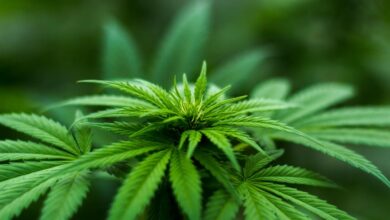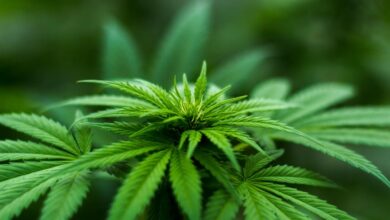
Difference Between Thc & Cbd
The distinction between THC and CBD is significant in the realm of cannabis compounds. THC is known for its psychoactive properties, often associated with the euphoric "high." Conversely, CBD is recognized for its therapeutic benefits without the intoxicating effects. Understanding these differences is crucial for consumers and patients alike. As regulations evolve and research expands, the implications for usage and legality become increasingly complex. What other factors should one consider when exploring these compounds?
What Is THC?
Tetrahydrocannabinol (THC) is the primary psychoactive compound found in cannabis. It is responsible for the characteristic "high" associated with marijuana use.
THC effects can include altered perception, euphoria, and relaxation.
The legality of THC varies widely around the world, with some regions permitting its use for medicinal or recreational purposes, while others impose strict prohibitions, reflecting diverse attitudes towards cannabis consumption.
What Is CBD?
Cannabidiol (CBD) is a non-psychoactive compound found in cannabis, gaining popularity for its potential therapeutic benefits.
Users report various CBD benefits, including relief from anxiety, inflammation, and chronic pain.
CBD is sourced from both marijuana and hemp plants, with hemp-derived products typically containing higher concentrations of CBD and lower levels of THC.
This makes CBD a favorable option for many seeking natural wellness solutions.
Key Differences Between THC and CBD
While CBD is well-known for its therapeutic benefits, another prominent cannabinoid, THC, presents a different profile of effects and uses.
THC is psychoactive, affecting mood and perception, while CBD does not induce a high.
Additionally, their legal status varies; CBD is often more widely accepted, whereas THC remains restricted in many areas due to its health effects and psychoactive properties.
Benefits and Uses of THC and CBD
Understanding the benefits and uses of THC and CBD reveals their distinct therapeutic applications and effects.
THC is recognized for its psychoactive properties, often used for pain relief and appetite stimulation, while CBD is valued for its anti-inflammatory and anxiety-reducing qualities.
Their legal status varies, with CBD generally more widely accepted, allowing for broader therapeutic applications in various settings.
Conclusion
In the intricate tapestry of cannabis, THC and CBD represent two distinct threads, each woven with unique properties and potentials. While THC dances in the realm of euphoria, inviting users to experience its intoxicating embrace, CBD offers a serene refuge, promoting healing without the haze. Understanding these differences illuminates the path for individuals seeking either recreational joy or therapeutic relief, allowing them to navigate the cannabis landscape with clarity and purpose, choosing the thread that resonates with their needs.






